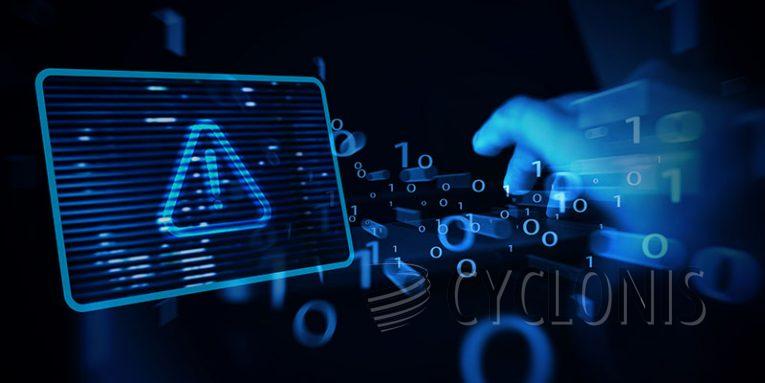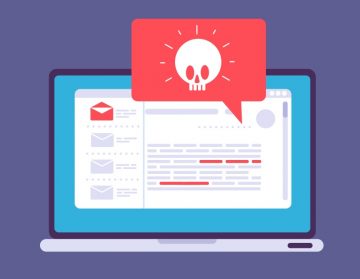Operating System Fell To My Hacking Expertise Email Scam

Table of Contents
What Is the “Operating System Fell To My Hacking Expertise” Scam?
The "Operating System Fell To My Hacking Expertise" email is a type of extortion scam where the sender poses as a hacker, claiming to have gained access to the recipient's computer. The sender of this fraudulent email threatens to release allegedly obtained compromising data unless a specified ransom is paid in Bitcoin. This email scam preys on the fear of privacy invasion and aims to extort money from unsuspecting recipients by creating a sense of urgency and panic.
Understanding the Claims Made in the Scam Email
There are multiple versions of this scam email circulating, with slight variations in the content and amount demanded. In one version, the email alleges that the hacker has gained control of the device, accessing personal files, the webcam, and even the display. The sender claims to have "intriguing" material obtained from the device and demands a payment of $1,250 in Bitcoin to delete the alleged footage and cease the invasion. In another version, the ransom demand is set at $1,050, with the emails featuring different Bitcoin wallet addresses for payment. Regardless of the version, the intent is the same: to frighten the recipient into paying by making them believe their privacy has been violated.
Here's a version of the said email message:
Hi there. I have some information that's likely to be impactful.
13.10.2024 16:40:28 - Take note that on this date, your device's operating system fell to my hacking expertise, allowing me full access to your account. You have been under my watchful observation for an enduring stretch of time. Your system's security has been overridden by a virus, placing your devices, including the display and camera, under my control. All your online and offline data is now accessible to me.
I've collected an extensive array of data about you.
In the course of watching you, I came across something intriguing.
You probably realize the weight of what I now know and what that necessitates. If you don't want me to do it, send me 1250 $ (Dollar US in my bitcoin wallet.
My BTC Wallet address:
bc1qyezej76e0hrj3488a469dvmyngq47m6sjxudkzFor those unsure about funding a Bitcoin wallet, Google can be used to find detailed funding instructions.
As soon as the funds are received, I'll notice it immediately and remove all the unwanted material. After that, we’ll part ways. I also commit to deactivating and removing all malware from your devices. You can trust me, I stand by my word. It’s a fair deal, especially considering the time I’ve invested in tracking your profile and traffic.Please note that you have exactly two days (48 hours) from the moment you open this letter to make the payment!
Following this timeframe, if I do not receive the agreed-upon amount from you, I will release access to your accounts and visited websites, personal information, and edited materials to the public without prior notice.
Always keep in mind that I am meticulous and don't make errors. It's unwise to jest with me because I have a wealth of options at my disposal. There’s no use in lodging complaints, as they won’t be able to track me down. Even formatting the drive or destroying the device won’t make a difference because I already possess your data.
There's no need to reply to me because I don't send messages from personal email, and I won't be reading any responses
Wishing you good luck and advising you not to be upset! Each of us has our own tasks, and today, you simply happened to find yourself on the less fortunate side.P.s. Moving forward, I'd recommend that you abide by internet safety rules and avoid visiting dubious sites.
You can use an antivirus like Dr.Web for enhanced protection.
Why These Threats Are Baseless
Despite the serious tone of these emails, all the claims made by the scammers are entirely fabricated. Scammers sending such emails do not have control over recipients' devices, nor have they obtained any compromising material. These messages are designed to create panic, tricking users into complying with the payment request. No matter how convincing the language may appear, these emails should be disregarded entirely, as none of the threats are legitimate.
The Irreversibility of Cryptocurrency Payments
One reason these scams involve cryptocurrency payments is the irreversibility of such transactions. Once a payment is sent to the scammer's Bitcoin wallet, it cannot be retrieved. For this reason, victims have no recourse once they have transferred funds to the scammers. This tactic is widely used in online scams because it ensures that funds remain in the hands of scammers without the possibility of recovery, making it essential to ignore these demands.
Why You Should Avoid Interacting with Scammers
It's crucial not only to avoid sending payments but also to refrain from engaging with scammers. Responding or providing any personal information may lead to further exploitation. Scammers could use additional information to access sensitive accounts or perform identity theft. Engaging with the scammer only exposes recipients to additional risks that may compromise their personal security or privacy.
Recognizing Extortion Emails and Sextortion Scams
Emails like the "Operating System Fell To My Hacking Expertise" message fall into a category known as extortion or sextortion scams. Such scams often use scare tactics, such as the threat of releasing private information or compromising images unless a ransom is paid. While they may reference personal data or hint at intimate material, these threats are fictitious. The scammers do not have the alleged access to recipients' accounts, devices, or private information, making these emails nothing more than empty threats.
Common Examples of Extortion Email Scams
The "Operating System Fell To My Hacking Expertise" scam is one of many similar tactics used by cybercriminals. Other emails with comparable themes include "I've Got Access To Your Smartphone," "Malware on Porn Website," and "Is Visiting A More Convenient Way to Reach You." These scams all share a similar pattern: claims of unauthorized access, the mention of compromising material, and demands for cryptocurrency payments to prevent alleged leaks. These messages rely on fear to manipulate recipients, encouraging them to pay quickly without verifying the truth of the claims.
How Scammers May Use Email to Spread Malware
Scammers use email not only to extort money but also as a channel to distribute malware. Malicious attachments or links in these emails can serve as a gateway to malware infections if users unknowingly open them. When a user interacts with an infected file, such as a document or executable, it can deploy malware to compromise the system. In some cases, infected files require the user to enable certain functions, such as macros in Office documents, for the malware to execute. By creating a sense of urgency, scammers increase the likelihood that recipients will bypass security measures and open harmful attachments.
The Risks of Malicious Links in Scam Emails
Fraudulent emails may also contain links directing users to dangerous websites. These websites may prompt users to download harmful software or trigger automatic downloads upon entry. This strategy enables scammers to infect users' devices even if they do not directly interact with attachments. Once malware is present on a device, it can harvest data, track keystrokes, or perform other malicious actions without the user's knowledge. Being cautious with unfamiliar links can help protect users from unintended malware downloads.
Protecting Yourself from Email Scams and Malware
To protect against scams like the "Operating System Fell To My Hacking Expertise" email, it's important to scrutinize every email carefully. Avoid opening attachments or clicking links in emails from unfamiliar senders, particularly if the content appears irrelevant or suspicious. Exercise caution when browsing websites that display pop-ups or suspicious advertisements, as they may link to harmful downloads. Additionally, downloading software only from official sources, such as reputable app stores, can help reduce the risk of downloading potentially harmful programs.
Bottom Line
By adopting safer online habits, users can minimize their exposure to email scams and other cyber threats. Always verify the sender's email address, check for signs of suspicious language or urgent demands, and be wary of unsolicited emails asking for sensitive information. Taking these steps not only protects users from extortion scams but also helps reduce the chances of malware infection, allowing for a safer and more secure online experience.








